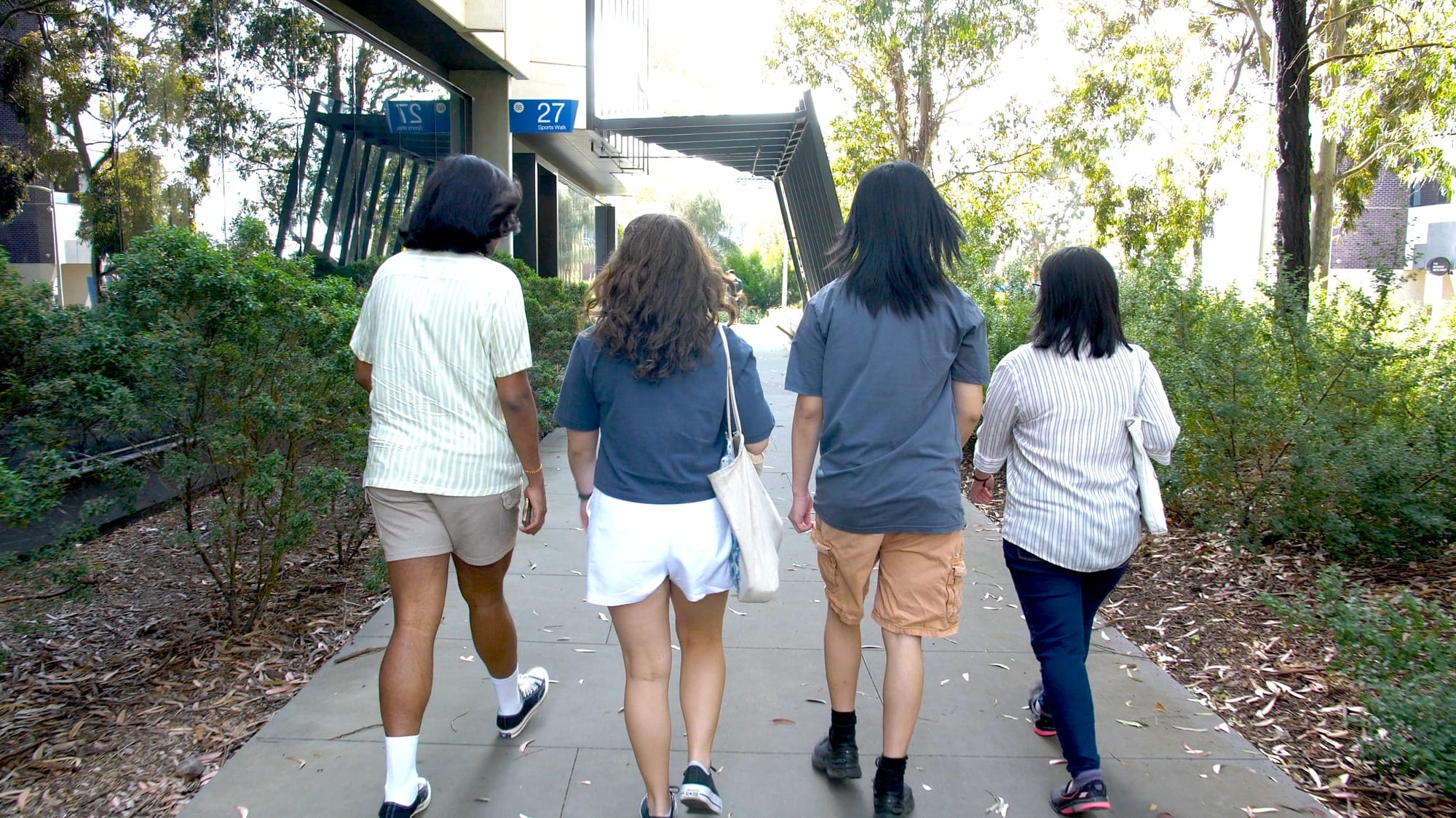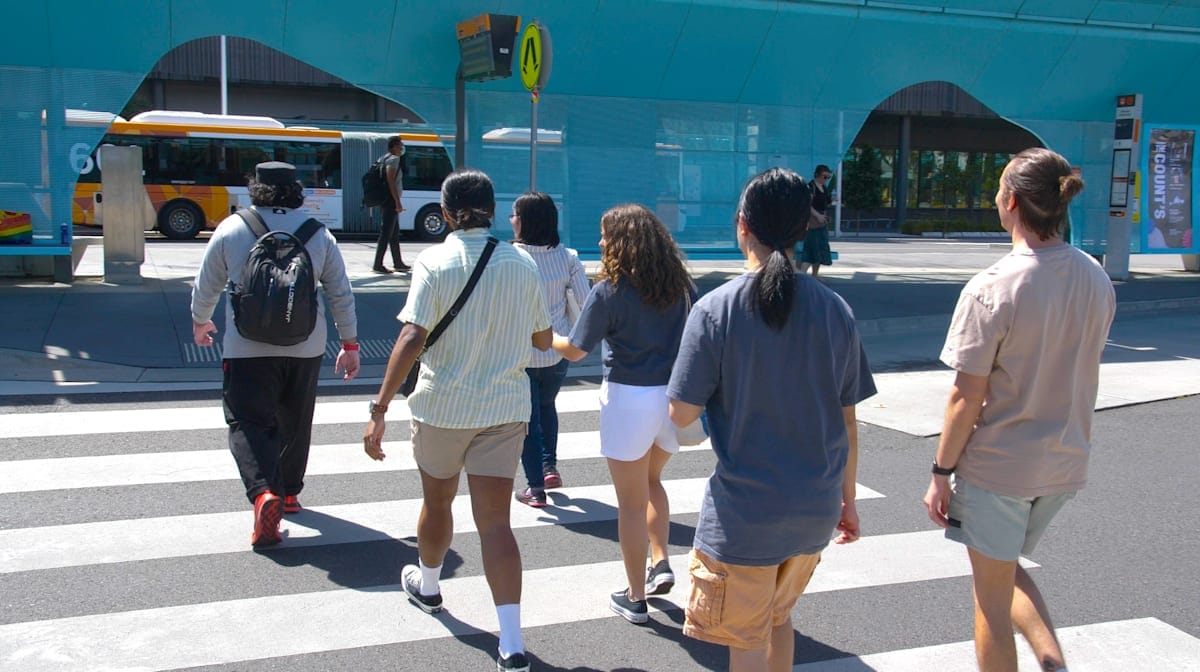
Universities have long been at the forefront of driving social progress in Australia, challenging norms and driving positive change, but despite all this good work, sometimes as a sector we fail to adequately address the very issues we fight to right.
Gender-based violence is a national crisis, one the university sector is not immune from, and we need to step up now.
Ending gender-based violence is a global conversation Australia is leading, with the tertiary sector home to some of the world’s foremost experts, but much more needs to be done if we’re to end it at universities, and more broadly.
In 2017, the Australian Human Rights Commission released its landmark report Change the Course, the first comprehensive national survey on the incidence of campus-based sexual assault and sexual harassment in Australia. More than 30,000 students from 39 universities responded.
Among the findings were that one in five students were sexually harassed in a university setting and that, in 2016, women were almost twice as likely as men to have been sexually harassed.
Despite the tertiary sector’s efforts to reduce the incidences of sexual assaults on campuses following the report, a second student survey conducted in 2021 and released in March 2022, the National Student Safety Survey, showed that not much had changed in the intervening years.
Australia’s National Plan to End Violence against Women and Children commits to ending gender-based violence in one generation. To achieve this, we urgently need expertise, increased commitment, action, funding, and political attention.
State, territory and federal governments put forward plan to curb sexual assaults at universities 👇👇👇 https://t.co/sgbUnvwO3I— Jason Clare MP (@JasonClareMP) November 22, 2023
The federal Minister for Education, Jason Clare, understands that universities have a critical role to play in addressing gender-based violence, so I welcomed the opportunity to be a part of the government’s reference group tasked with developing an action plan to address it in higher education.
The outcome of that work presents an opportunity for the university sector to be a leader in the elimination of sexual harm and gender-based violence.
What needs to happen
Key proposals that could serve as game-changers include the establishment of a national code, a dedicated unit to oversee the implementation of the code, and the potential role of a Commonwealth Student Ombudsman.
Implementation is, of course, critical to avoid unnecessary regulatory complexity for the sector, but crucially, it presents the opportunity for demonstrable change on a crucial issue for our staff and student body.

The proposals call for a holistic, whole-of-institution and sector-wide approach as imperative in preventing gender-based violence on campuses. Embedding a culture of prevention requires commitment from higher education leadership, investment in expertise, and a culture of listening.
It's about a genuine, lived commitment to a dialogue with students, and fostering a safe and inclusive environment for all.
Accountability must be a cornerstone of this approach, addressing systemic issues head-on. It’s not enough to respond to incidents; our universities must proactively identify and rectify root causes.
It’s about trauma-informed and victim-survivor-centred responses that also realise good and proper due process in responding to allegations of gender-based violence.
Prioritising the safety, wellbeing and agency of victim-survivors is paramount, and strengthening the mechanisms for accountability ensures perpetrators are held responsible.
But the main focus needs to be primary prevention.
Getting it right in our own backyard
At Monash University, we’ve made significant progress, but there’s more work we can do. We’ve taken a strong lived experience approach, working closely with victim-survivors, students and experts, and investing significantly in prevention. This dedication to accountability and transparency is a standard we want all higher education institutions in Australia to strive for.
Our inaugural Sexual Harm Prevention and Response Annual Report 2022 was published on 19 June, 2023, and provides further detail on disclosures, reports and support, as well as key prevention initiatives, provided to our community. This report is reviewed by the University Council, and will be published annually. It builds on our annual public reporting of incidents since 2017.
All reports of alleged sexual harms are referred to Monash University's Safer Community Unit (SCU), which provides information, advice, support and referrals to appropriate support services.
These include internal university service referrals, as well as external agencies, including Victoria Police and the Centre Against Sexual Assault.

All prevention initiatives incorporate the student voice, with students playing an active role in developing and designing evidence-based prevention initiatives. This includes all new staff and students completing a compulsory Respect at Monash learning module, and a consent and respectful relationships program that’s undertaken by all residents living on-campus.
This year, we’ve been piloting the Dating in Australia program for international students that provides information on sexual health, consent. and respectful relationships, and where they can seek help and support at Monash.
Monash will continue to invest considerable resources to raise awareness of sexual harm and gender-based violence, lifting the visibility and accessibility of support services and reporting options for students, and ensuring staff and students across the University are equipped with the skills to respond appropriately to disclosures of sexual harm in a compassionate and considered way.
This includes providing ongoing training and professional development to staff within our Safer Community Unit, residential services and other student-facing roles, to continue to enhance their ability to respond to disclosures and reports of sexual harm in a trauma-informed and victim-survivor-centred manner.
Monash's commitment to being a global leader in the elimination of gender-based violence extends beyond research and into the ways we operate as a university. For universities to remain relevant and to retain and attract the best students and staff from around the world, we need real and sustained efforts to eliminate all gender-based violence.
Higher education institutions aren’t just academic hubs; they’re communities with the power to influence social norms and values.
Monash University's aspiration to be a sector leader extends beyond academia; it’s a call for universities to be trailblazers in societal transformation, and be a leading sector in the elimination of gender-based violence.





